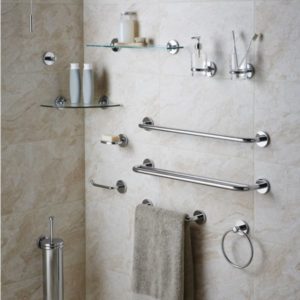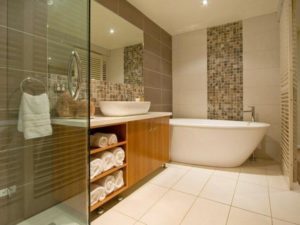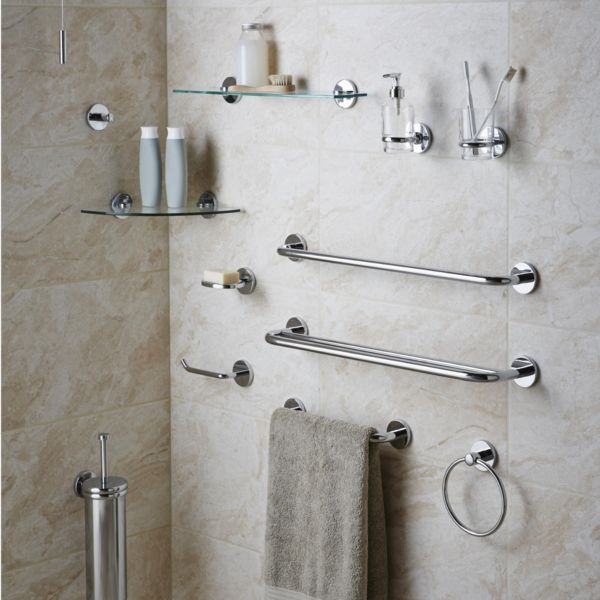So you want to prevent hard water buildup?
Hard water buildup can be a frustrating and unsightly problem in any bathroom. It can leave your shower head clogged, your tiles looking dingy, and your skin feeling dry and itchy.
But there are steps you can take to prevent hard water buildup and keep your bathroom looking and feeling clean and fresh.
Here are some tips to help you do that.

Use a water softener
The most effective way to prevent hard water buildup is to use a water softener. A water softener works by removing the minerals that cause hard water, such as calcium and magnesium, from your water supply.
This can help prevent buildup on your shower head and other bathroom fixtures, as well as make your water feel softer and more pleasant to use.
Clean your shower head regularly
Even if you have a water softener, it’s still a good idea to clean your shower head regularly to prevent buildup. You can do this by filling a plastic bag with a solution of equal parts water and vinegar, then placing the bag over your shower head and securing it with a rubber band.
Let the shower head soak for a few hours or overnight, then remove the bag and rinse the shower head with water.
Use a shower head with a built-in filter
Another option to prevent hard water buildup is to use a shower head with a built-in filter.
These filters can remove minerals and other impurities from your water supply before it reaches your shower head, helping to prevent buildup and keep your water feeling soft and clean.
Install a water softening system
If you’re experiencing severe hard water buildup, you may want to consider installing a water softening system in your home. These systems can be installed at the point where your water enters your home, and can help prevent buildup throughout your plumbing system.
They can be expensive to install, but may be worth the investment if hard water is a persistent problem for you.

Wipe down your shower after each use
To prevent buildup on your shower tiles and other surfaces, it’s a good idea to wipe down your shower after each use. This can help remove any lingering moisture and prevent minerals from settling on the surface.
You can use a squeegee or a microfiber cloth to do this quickly and easily.
Use a water-resistant sealant on your tiles
If you’re remodeling your bathroom or installing new tiles, consider using a water-resistant sealant on the surface. This can help prevent minerals and other impurities from settling on the tiles, and make them easier to clean in the future.
Use natural cleaning solutions
When it comes to cleaning your bathroom fixtures, it’s important to use the right cleaning solutions.
Harsh chemicals can damage your fixtures and potentially harm your health. Instead, consider using natural cleaning solutions like vinegar and baking soda. These are effective at removing hard water buildup and are safe for you and the environment.
Use a water-saving shower head
Using a water-saving shower head can not only help you save water but can also prevent hard water buildup.
The reason for this is that a lower water flow can help reduce the buildup of minerals on your shower head and other fixtures. Water-saving shower heads are easy to install and can help you save money on your water bills.
Keep your bathroom well-ventilated
Finally, it’s important to keep your bathroom well-ventilated to prevent hard water buildup.
Moisture in the air can contribute to the buildup of minerals and other impurities on your fixtures and surfaces. To prevent this, make sure your bathroom has adequate ventilation, either through a window or a fan, and keep it well-ventilated after you’ve used the shower or bath.
In summary, preventing hard water buildup in your bathroom requires a combination of
- regular maintenance,
- the right fixtures, and
- a few simple lifestyle changes.
By using a water softener, cleaning your shower head regularly, and using natural cleaning solutions, you can keep your bathroom looking and feeling clean and fresh.
Using a shower head with a built-in filter and a water-saving shower head can also help reduce hard water buildup.
Finally, keeping your bathroom well-ventilated and wiping down surfaces after use can help prevent moisture from contributing to buildup.
With these tips, you can enjoy a clean, comfortable, and healthy bathroom.
